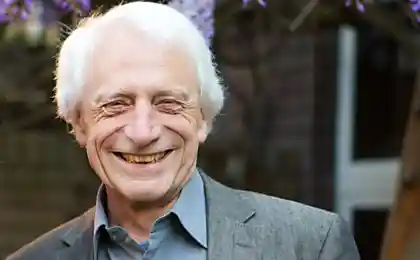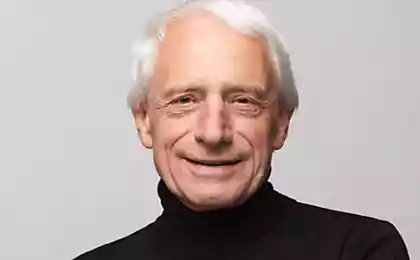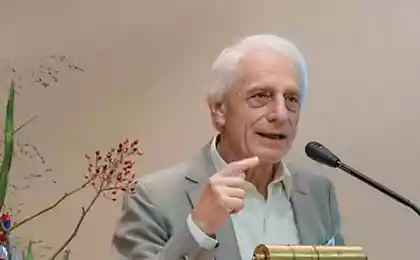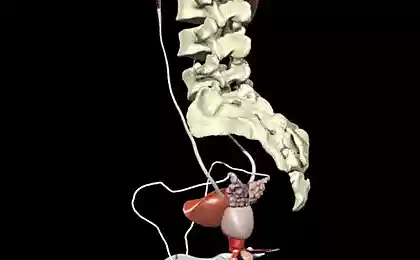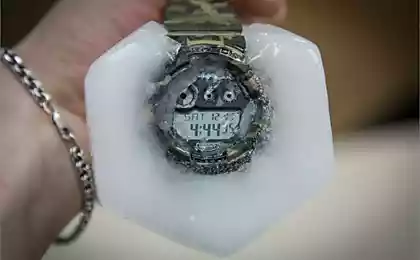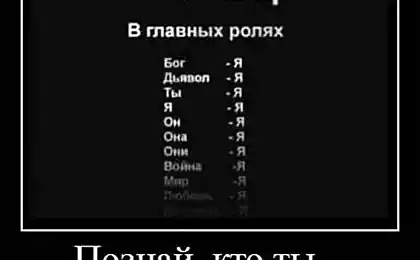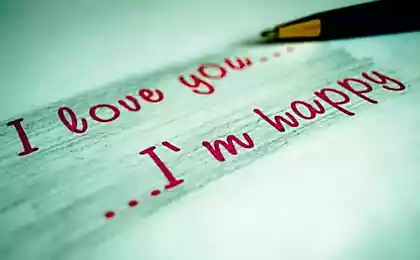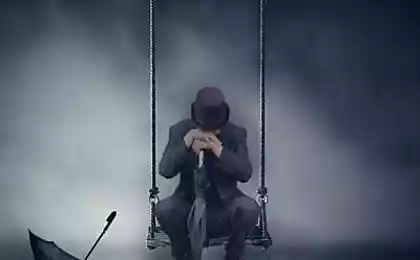656
The Alfred Laengle: to maintain dignity in suffering
At the faculty of psychology Higher school of Economics hosted a public lecture by the famous Austrian psychologist Alfried Laengle "Mental trauma. To preserve human dignity in suffering." We offer a brief summary of this speech.
Trauma – how it is
Our today's topic is trauma. It is a very sensitive part of human reality. We can experience love, joy, pleasure, but also depression, addiction. As well as pain. And that's exactly what I'm going to say.
Let's start with everyday reality. Trauma is a Greek word meaning injury. They happen every day.
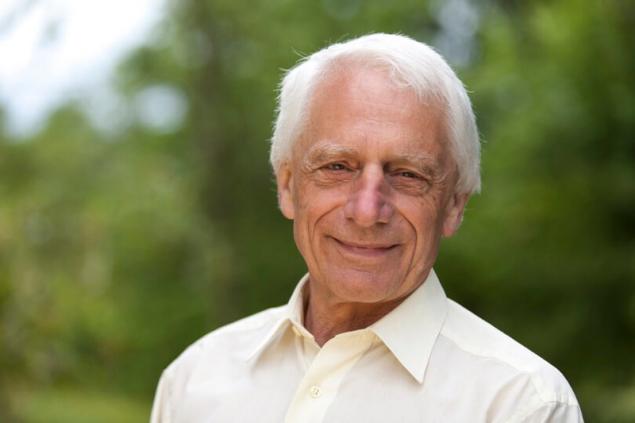
When trauma happens, we are numb and everything was being questioned – a relationship in which we have not taken seriously, bullying at work or in childhood, when we would prefer a brother or sister. Someone- strained relationship with his parents, and they are left without an inheritance. And yet there is violence in the family. The worst form of trauma – war.
The source of the injury can be not only people, but the fate of earthquake, disaster, fatal diagnoses. All this information is traumatic, she leads us in horror and shock. In the most severe cases, can shatter our beliefs about how life works. And we say, "I never imagined my life like this".
Thus, trauma confronts us with the fundamentals of existence. Any injury is a tragedy. We are experiencing a limitation in the media, we feel vulnerable. The question arises, how does it survive and remain human beings. How can we remain ourselves, to preserve the feeling and attitude.
Mechanisms of injury
We've all experienced physical damage to cut yourself or break a leg. But what is the damage? It is the violent destruction of the whole. From a phenomenological point of view, when I cut the bread and cut it, with me happens the same as with bread. But the bread doesn't cry, but I am.
The knife violates my boundaries, the boundaries of my skin. The knife breaks the skin integrity, because it is not strong enough to resist him. Such is the nature of any injuries. And any force that tears apart the boundaries of integrity, we call violence.
Objectively, the violence is not necessary. If I'm weak or in depression, you will feel wounded, even if much effort was not.
The trauma – loss of functionality: for example, with a broken leg does not like. And yet, lost something of their own. For example, my blood spread on the table, although in nature it is not provided. And still the pain comes.
She comes to the fore of consciousness, veiled the whole world, we lose efficiency. Although by itself, the pain is just a signal.
The pain is different, but all of it causes a sense of sacrifice. The victim feels the Nude is the basis of existential analysis. When I hurt, I feel naked before the world.
Pain says, "Do something, it's a priority. Take a stand, find the cause, eliminate the pain." If we do this, we have a chance to avoid more pain.
Psychological trauma – the mechanism is the same. Elsa
On a psychological level there is something similar to a physical level:

I had a patient. Her trauma comes from rejection.
Elsa was forty-six, she suffered from depression from twenty years ago, in the last two years particularly strong. A separate challenge for her was the holidays – Christmas or birthdays. Then she couldn't even move and passed on the chores to others.
Her main feeling was: "I'm worthless". She tortured my family with my doubts and suspicions, got kids with questions.
We found anxiety she didn't realize, as well as the communication of anxiety with the basic senses and uttered the question: "if I'm valuable to their children." Then we came to the question: "When they don't answer me, where are you going tonight, I do not feel beloved."
Then she wanted to scream and cry, but cry she had long ceased – tears act on the nerves of her husband. She felt no right to shout and complain, because I thought that it didn't matter to others, so no matter for her.
We started to look for came from this sense of lack of values, and found that in her family it was the custom to take without asking her stuff. Once in my childhood they took away her favorite purse and gave it to my cousin, so that she looked better on the family pictures. It is a trifle, but it is firmly deposited in the mind of the child, if the similar repeats. In the life of Elsa rejection repeated constantly.
Mother constantly compared her with her brother, and the brother was better. Her honesty was punished. She had to fight for her husband, then to work hard. About her gossiping the whole village.
The only one who loved her, protected and proud of it, was the father. It saved her from more serious personality disorders, but all the important people she had heard only criticism. She was told that she had no rights, that it is worse that it is worthless.
When she brought it, she again became ill. Now it was not only a spasm in her throat, a pain which spread to the shoulders.
"At first, from the statements of the relatives I was furious, she said, but then I got kicked out son. He told my family that I slept with his brother. Mother called me a prostitute and kicked out. Stood up for me not even the future husband, who then had an affair with other women."
She was able to cry about all of this just for the therapy session. But she could not be alone – in solitude thoughts began to torment her especially hard.
Awareness of the pain caused to others, her feelings and anguish, in the end, led to the fact that during the year of treatment, Elsa was able to cope with depression.
Thank God that the depression eventually became so strong that the woman could not ignore.
Trauma. What's going on? Scheme
Pain is a signal that makes us look at the problem. But the main question that arises from the victim: "What do I stand if I feel like it? Why me? Are you kidding me?"
Unexpected injury does not fit our picture of reality. Our values are destroyed, and every injury puts into question the future. Every injury brings a feeling that what is happening is too much. Under this wave is our ego.
Existential psychology sees the person in four dimensions:
When serious injury, as a rule, weaken all four measurements, but the most damaged relationship with yourself. The structure of existence is bursting at the seams, and the strength to overcome the situation fade away.
In the center of the process is the human Y. it must recognize what is happening and decide what to do next, but humans have no powers, and then he needs the help of others.
Trauma in its purest form is an unexpected meeting with death or serious injury. Trauma happens to me, but sometimes it doesn't need to threaten me. Enough to see that something threatens the other – and then the person is also experiencing shock.
More than half of people have experienced this reaction at least once in a lifetime, and about 10% then showed symptoms of PTSD – in returns a traumatic condition, nervousness and other.
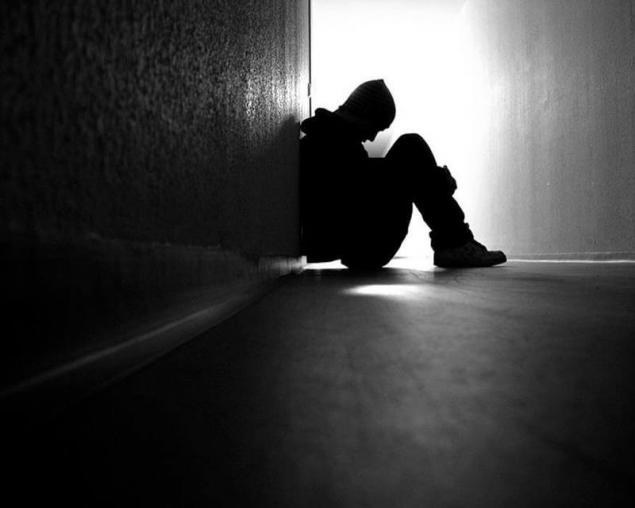
Trauma affects the deepest layers of existence, but most of all suffers from basic trust to the world. For example, when the people rescued after an earthquake or tsunami, they feel like them in the world holds nothing more.
Injury and dignity. As the man descends
It is especially hard tolerated trauma because of its inevitability. We are faced with circumstances which we must accept. It's fate, a destructive force over which I have no control.
The experience of such a situation means we are experiencing something that in principle did not think it possible. We lose faith even in science and technology. We already thought we tamed the world, and here we are as children playing in the sandbox, and our castle is destroyed. How to be a man?
Viktor Frankl two and a half years in a concentration camp, lost his entire family, narrowly escaped death, constantly through depreciation, but not broken, and even spiritually grown. Yes, this was the damage left to the end of his life: even at the age of eighty he sometimes had nightmares, and he cried at night.
In the book "Man's search for meaning" he describes the horror at the arrival at the concentration camp. As a psychologist, he identified four main elements. In the eyes of all was the fear, the reality was incredible. But especially they are shocked by the struggle of all against all. They lost a future and dignity. This is consistent with the four fundamental motivations, which were not known then.
The prisoners were lost, gradually, came the realization that under the past life, you can draw a line. Came apathy, a gradual mental state of dying from the feelings it only remained the pain of injustice, humiliation.
The second consequence was the removal of himself from life, people have devolved to a primitive existence, and thought only about food, place to stay warm and sleep –other interests left. Someone will say that it's okay food first, then morality. But Frankl has shown that it is not.
Third – no sense of individuality and freedom. He writes: "We were no longer people, but a part of chaos. Life became about being in the herd.
Fourth – gone is the sense of the future. A real thought of what is happening actually, the future was not. All around was meaningless.
Similar symptoms can be observed in any injuries. Rape victims, soldiers returning from war are experiencing a crisis of fundamental motivations. They feel that cannot trust anybody.
Such a condition requires special care to restore basic trust in the world. This requires huge effort, time and very careful work.
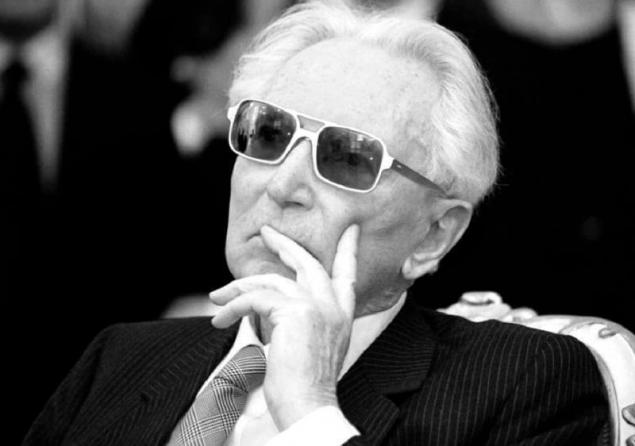
Freedom and meaning. Secret and existential turn of Viktor Frankl
Any injury asks a question about the meaning. He is very humane, because the injury itself is meaningless. It would be an ontological contradiction to say that we make sense of injuries, murder. We can experience the hope that all in the Lord's hands. But this issue is very personal.
Viktor Frankl raised the issue that we have to make the existential turn: injury can become meaningful through our own actions. "Why?" –the question is meaningless. But "can I have something to learn from this, become a deeper?" – gives the trauma meaning.
To fight, but not to retaliate. How?
The loop on the question "why?" makes us especially vulnerable. We suffer from something that is meaningless in itself – it destroys us. Trauma destroys our borders, leads to the loss of self, loss of dignity. An injury that occurs through violence over others, leading to humiliation. Mockery of others, the humiliation of the victims is the dehumanization. Therefore, our response – we are fighting for meaning and dignity.
This happens not only when we are traumatized ourselves, but when suffering people with whom we identify ourselves. Chechnya and Syria, world war and other events lead to suicidal attempts, even those people who were not injured themselves.
For example, young Palestinians show movies about unjust treatment by the Israeli soldiers. And they are trying to restore fairness to victims and hurt the guilty. Traumatisierung condition can be imposed at a distance. In the returned form is found in malignant narcissism. These people take pleasure in seeing the suffering of others.
The question arises, how to deal with this by means other than revenge and suicide. In existential psychology used the method of "stand beside me".
There are two authors, partly in opposition to each other – Camus and Frankl.
In the book of Sisyphus Camus calls to make a conscious suffering, to make sense of my own resistance to the gods.
Frankl is famous with the motto "embrace life, no matter what".
The Frenchman Camus offers to draw energy from self-esteem. The Austrian Frankl – that's got to be more. Your relationship with yourself, other people and God.
The power of the flower and the freedom of opinion
Trauma is the internal dialogue. It is very important in case of injury not give yourself to stop. You need to accept what happened in the world, but not to stop life, to save interior space. In the concentration camp to keep your inner sense helped simple things: watching the sunrise and sunset, shape of clouds, accidentally grows a flower or mountain.
It's hard to believe that such a simple thing can nourish us, we usually expect more. But the flower was proof that beauty still exists. Sometimes they pushed each other and showed signs of how great the world is. And then they felt that life is so valuable that it overpowers all the circumstances. We in the existential analysis is called fundamental value.
Another means to overcome the terror was a good relationship. For Frankl, the desire to see again his wife and family.
Internal dialogue also helped to create a distance with what is happening. Frankl thought that he would ever write a book, I started to analyze – and this alienates it from happening.
Third – even when the restriction of external freedom they had internal resources to build a way of life. Frankl wrote: "a man can take nothing, except to take a position".
The ability to tell a neighbor "Good morning" and look him in the eye was not necessary, but it meant that the person still has a minimum of freedom.
The situation of the paralytic, bedridden, implies a minimum of freedom, but it should be able to live. Then you feel that you're still human, not an object, and you have dignity. And still they had faith.
The famous Frankl's existential turn is that the question "why?" he wrapped up in "what it expects from me?". This turn means that I still have freedom, and thus dignity. So, we can make something of their own even in an ontological sense.
Viktor Frankl wrote: "what we were looking for, had such a deep meaning that he attached importance not only of death, but also dying and suffering. The struggle can be modest and discreet, not necessarily loud."
Austrian psychologist survived and returned home, but he realized that he forgot something to rejoice, and he studied it again. And it was another experiment. He could not understand how they got through it. And, learning this, he realized that more is not afraid of anything except God.
Also interesting: If we consider man as he is, we make it worse
Viktor Frankl — those who have lost the meaning of life
To sum up, I really hope that this lecture will get you at least a little useful.
Little value if we are not too proud to see them. And the words of welcome said to our companion, may well become a manifestation of our freedom that gives existence meaning. And then we will be able to feel people.published
Author: Alfred Laengle
P. S. And remember, only by changing their consumption — together we change the world! ©
Join us in Facebook , Vkontakte, Odnoklassniki
Source: www.pravmir.ru/travma-kak-sohranit-dostoinstvo-v-stradanii/
Trauma – how it is
Our today's topic is trauma. It is a very sensitive part of human reality. We can experience love, joy, pleasure, but also depression, addiction. As well as pain. And that's exactly what I'm going to say.
Let's start with everyday reality. Trauma is a Greek word meaning injury. They happen every day.

When trauma happens, we are numb and everything was being questioned – a relationship in which we have not taken seriously, bullying at work or in childhood, when we would prefer a brother or sister. Someone- strained relationship with his parents, and they are left without an inheritance. And yet there is violence in the family. The worst form of trauma – war.
The source of the injury can be not only people, but the fate of earthquake, disaster, fatal diagnoses. All this information is traumatic, she leads us in horror and shock. In the most severe cases, can shatter our beliefs about how life works. And we say, "I never imagined my life like this".
Thus, trauma confronts us with the fundamentals of existence. Any injury is a tragedy. We are experiencing a limitation in the media, we feel vulnerable. The question arises, how does it survive and remain human beings. How can we remain ourselves, to preserve the feeling and attitude.
Mechanisms of injury
We've all experienced physical damage to cut yourself or break a leg. But what is the damage? It is the violent destruction of the whole. From a phenomenological point of view, when I cut the bread and cut it, with me happens the same as with bread. But the bread doesn't cry, but I am.
The knife violates my boundaries, the boundaries of my skin. The knife breaks the skin integrity, because it is not strong enough to resist him. Such is the nature of any injuries. And any force that tears apart the boundaries of integrity, we call violence.
Objectively, the violence is not necessary. If I'm weak or in depression, you will feel wounded, even if much effort was not.
The trauma – loss of functionality: for example, with a broken leg does not like. And yet, lost something of their own. For example, my blood spread on the table, although in nature it is not provided. And still the pain comes.
She comes to the fore of consciousness, veiled the whole world, we lose efficiency. Although by itself, the pain is just a signal.
The pain is different, but all of it causes a sense of sacrifice. The victim feels the Nude is the basis of existential analysis. When I hurt, I feel naked before the world.
Pain says, "Do something, it's a priority. Take a stand, find the cause, eliminate the pain." If we do this, we have a chance to avoid more pain.
Psychological trauma – the mechanism is the same. Elsa
On a psychological level there is something similar to a physical level:
- the invasion of the border
- loss own
- the loss of functionality.

I had a patient. Her trauma comes from rejection.
Elsa was forty-six, she suffered from depression from twenty years ago, in the last two years particularly strong. A separate challenge for her was the holidays – Christmas or birthdays. Then she couldn't even move and passed on the chores to others.
Her main feeling was: "I'm worthless". She tortured my family with my doubts and suspicions, got kids with questions.
We found anxiety she didn't realize, as well as the communication of anxiety with the basic senses and uttered the question: "if I'm valuable to their children." Then we came to the question: "When they don't answer me, where are you going tonight, I do not feel beloved."
Then she wanted to scream and cry, but cry she had long ceased – tears act on the nerves of her husband. She felt no right to shout and complain, because I thought that it didn't matter to others, so no matter for her.
We started to look for came from this sense of lack of values, and found that in her family it was the custom to take without asking her stuff. Once in my childhood they took away her favorite purse and gave it to my cousin, so that she looked better on the family pictures. It is a trifle, but it is firmly deposited in the mind of the child, if the similar repeats. In the life of Elsa rejection repeated constantly.
Mother constantly compared her with her brother, and the brother was better. Her honesty was punished. She had to fight for her husband, then to work hard. About her gossiping the whole village.
The only one who loved her, protected and proud of it, was the father. It saved her from more serious personality disorders, but all the important people she had heard only criticism. She was told that she had no rights, that it is worse that it is worthless.
When she brought it, she again became ill. Now it was not only a spasm in her throat, a pain which spread to the shoulders.
"At first, from the statements of the relatives I was furious, she said, but then I got kicked out son. He told my family that I slept with his brother. Mother called me a prostitute and kicked out. Stood up for me not even the future husband, who then had an affair with other women."
She was able to cry about all of this just for the therapy session. But she could not be alone – in solitude thoughts began to torment her especially hard.
Awareness of the pain caused to others, her feelings and anguish, in the end, led to the fact that during the year of treatment, Elsa was able to cope with depression.
Thank God that the depression eventually became so strong that the woman could not ignore.
Trauma. What's going on? Scheme
Pain is a signal that makes us look at the problem. But the main question that arises from the victim: "What do I stand if I feel like it? Why me? Are you kidding me?"
Unexpected injury does not fit our picture of reality. Our values are destroyed, and every injury puts into question the future. Every injury brings a feeling that what is happening is too much. Under this wave is our ego.
Existential psychology sees the person in four dimensions:
- in its relationship with the world,
- with life
- with self,
- with the future.
When serious injury, as a rule, weaken all four measurements, but the most damaged relationship with yourself. The structure of existence is bursting at the seams, and the strength to overcome the situation fade away.
In the center of the process is the human Y. it must recognize what is happening and decide what to do next, but humans have no powers, and then he needs the help of others.
Trauma in its purest form is an unexpected meeting with death or serious injury. Trauma happens to me, but sometimes it doesn't need to threaten me. Enough to see that something threatens the other – and then the person is also experiencing shock.
More than half of people have experienced this reaction at least once in a lifetime, and about 10% then showed symptoms of PTSD – in returns a traumatic condition, nervousness and other.

Trauma affects the deepest layers of existence, but most of all suffers from basic trust to the world. For example, when the people rescued after an earthquake or tsunami, they feel like them in the world holds nothing more.
Injury and dignity. As the man descends
It is especially hard tolerated trauma because of its inevitability. We are faced with circumstances which we must accept. It's fate, a destructive force over which I have no control.
The experience of such a situation means we are experiencing something that in principle did not think it possible. We lose faith even in science and technology. We already thought we tamed the world, and here we are as children playing in the sandbox, and our castle is destroyed. How to be a man?
Viktor Frankl two and a half years in a concentration camp, lost his entire family, narrowly escaped death, constantly through depreciation, but not broken, and even spiritually grown. Yes, this was the damage left to the end of his life: even at the age of eighty he sometimes had nightmares, and he cried at night.
In the book "Man's search for meaning" he describes the horror at the arrival at the concentration camp. As a psychologist, he identified four main elements. In the eyes of all was the fear, the reality was incredible. But especially they are shocked by the struggle of all against all. They lost a future and dignity. This is consistent with the four fundamental motivations, which were not known then.
The prisoners were lost, gradually, came the realization that under the past life, you can draw a line. Came apathy, a gradual mental state of dying from the feelings it only remained the pain of injustice, humiliation.
The second consequence was the removal of himself from life, people have devolved to a primitive existence, and thought only about food, place to stay warm and sleep –other interests left. Someone will say that it's okay food first, then morality. But Frankl has shown that it is not.
Third – no sense of individuality and freedom. He writes: "We were no longer people, but a part of chaos. Life became about being in the herd.
Fourth – gone is the sense of the future. A real thought of what is happening actually, the future was not. All around was meaningless.
Similar symptoms can be observed in any injuries. Rape victims, soldiers returning from war are experiencing a crisis of fundamental motivations. They feel that cannot trust anybody.
Such a condition requires special care to restore basic trust in the world. This requires huge effort, time and very careful work.

Freedom and meaning. Secret and existential turn of Viktor Frankl
Any injury asks a question about the meaning. He is very humane, because the injury itself is meaningless. It would be an ontological contradiction to say that we make sense of injuries, murder. We can experience the hope that all in the Lord's hands. But this issue is very personal.
Viktor Frankl raised the issue that we have to make the existential turn: injury can become meaningful through our own actions. "Why?" –the question is meaningless. But "can I have something to learn from this, become a deeper?" – gives the trauma meaning.
To fight, but not to retaliate. How?
The loop on the question "why?" makes us especially vulnerable. We suffer from something that is meaningless in itself – it destroys us. Trauma destroys our borders, leads to the loss of self, loss of dignity. An injury that occurs through violence over others, leading to humiliation. Mockery of others, the humiliation of the victims is the dehumanization. Therefore, our response – we are fighting for meaning and dignity.
This happens not only when we are traumatized ourselves, but when suffering people with whom we identify ourselves. Chechnya and Syria, world war and other events lead to suicidal attempts, even those people who were not injured themselves.
For example, young Palestinians show movies about unjust treatment by the Israeli soldiers. And they are trying to restore fairness to victims and hurt the guilty. Traumatisierung condition can be imposed at a distance. In the returned form is found in malignant narcissism. These people take pleasure in seeing the suffering of others.
The question arises, how to deal with this by means other than revenge and suicide. In existential psychology used the method of "stand beside me".
There are two authors, partly in opposition to each other – Camus and Frankl.
In the book of Sisyphus Camus calls to make a conscious suffering, to make sense of my own resistance to the gods.
Frankl is famous with the motto "embrace life, no matter what".
The Frenchman Camus offers to draw energy from self-esteem. The Austrian Frankl – that's got to be more. Your relationship with yourself, other people and God.
The power of the flower and the freedom of opinion
Trauma is the internal dialogue. It is very important in case of injury not give yourself to stop. You need to accept what happened in the world, but not to stop life, to save interior space. In the concentration camp to keep your inner sense helped simple things: watching the sunrise and sunset, shape of clouds, accidentally grows a flower or mountain.
It's hard to believe that such a simple thing can nourish us, we usually expect more. But the flower was proof that beauty still exists. Sometimes they pushed each other and showed signs of how great the world is. And then they felt that life is so valuable that it overpowers all the circumstances. We in the existential analysis is called fundamental value.
Another means to overcome the terror was a good relationship. For Frankl, the desire to see again his wife and family.
Internal dialogue also helped to create a distance with what is happening. Frankl thought that he would ever write a book, I started to analyze – and this alienates it from happening.
Third – even when the restriction of external freedom they had internal resources to build a way of life. Frankl wrote: "a man can take nothing, except to take a position".
The ability to tell a neighbor "Good morning" and look him in the eye was not necessary, but it meant that the person still has a minimum of freedom.
The situation of the paralytic, bedridden, implies a minimum of freedom, but it should be able to live. Then you feel that you're still human, not an object, and you have dignity. And still they had faith.
The famous Frankl's existential turn is that the question "why?" he wrapped up in "what it expects from me?". This turn means that I still have freedom, and thus dignity. So, we can make something of their own even in an ontological sense.
Viktor Frankl wrote: "what we were looking for, had such a deep meaning that he attached importance not only of death, but also dying and suffering. The struggle can be modest and discreet, not necessarily loud."
Austrian psychologist survived and returned home, but he realized that he forgot something to rejoice, and he studied it again. And it was another experiment. He could not understand how they got through it. And, learning this, he realized that more is not afraid of anything except God.
Also interesting: If we consider man as he is, we make it worse
Viktor Frankl — those who have lost the meaning of life
To sum up, I really hope that this lecture will get you at least a little useful.
Little value if we are not too proud to see them. And the words of welcome said to our companion, may well become a manifestation of our freedom that gives existence meaning. And then we will be able to feel people.published
Author: Alfred Laengle
P. S. And remember, only by changing their consumption — together we change the world! ©
Join us in Facebook , Vkontakte, Odnoklassniki
Source: www.pravmir.ru/travma-kak-sohranit-dostoinstvo-v-stradanii/

